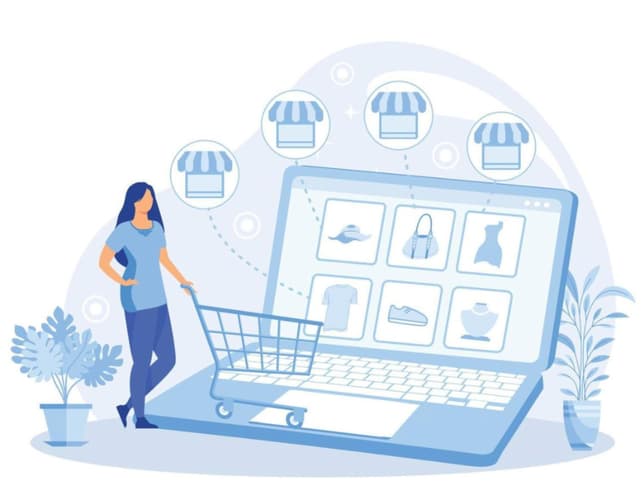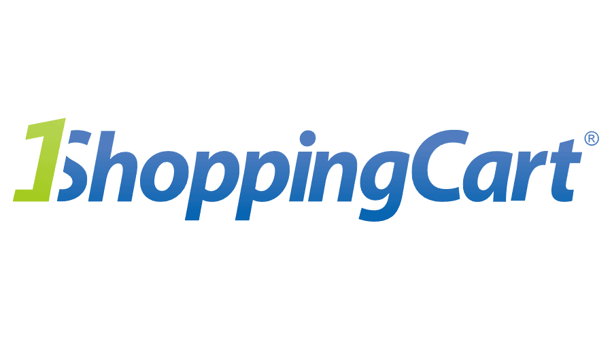
The popularity of online shopping has skyrocketed in recent years, making it easier, more convenient, and accessible for consumers to purchase products and services from the comfort of their own homes. However, with millions of transactions occurring daily, online shopping scams are also rising.
That is why it has become increasingly important for merchants to ensure that their customers' data and transactions are secure, no matter whether they sell digital downloads, physical products, or anything else. Online merchants must take proactive steps to protect their stores and their customers from these scams.
In this article, we will explore the key aspects of ecommerce security and different types of scams. We will also share a few tips on how to protect your store from online shopping scams.
Ecommerce Security: An Overview
Ecommerce security refers to the measures taken to protect sensitive information such as financial details, personal information, and passwords from unauthorized access, use, or theft. Ensuring the security of ecommerce websites and applications is crucial for maintaining the privacy of sensitive information and the reliability of financial transactions.
To effectively protect your ecommerce business from online shopping scams, ecommerce security protocols must focus on three key elements: data integrity, authenticity, and privacy.
Keep Data Unadulterated
Data integrity is crucial to ensure the reliability and accuracy of the information, particularly when it comes to financial transactions. Merchants must ensure that their payment gateway and systems are secure and free from tampering so that the customer's data is kept unaltered and secure.
Shield Private Data from Third Parties
It is essential to ensure that sensitive information such as financial details, personal information, and passwords are protected from unauthorized access, use, or theft by third parties. This can be achieved through the implementation of robust security measures such as encryption and multi-factor authentication.
Allow Only Authorized People Access
To maintain the privacy of sensitive information, merchants must ensure that only authorized individuals have access to sensitive data. This can be achieved by implementing strict access control protocols, such as password-protected accounts and secure user authentication systems.
Only a holistic combination of data integrity, authenticity, and privacy can secure your eCommerce business from the prying eyes of hackers. If you want to know more about eCommerce security and how to protect your eCommerce store from hackers, keep reading this article!
What are the different types of eCommerce security threats?
There are various types of ecommerce security threats that merchants need to be aware of to protect their stores and their customers. Some of the key ecommerce security threats include:
Overpayment Scams
This type of scam occurs when a buyer sends a payment for an item higher than the asking price and then asks the seller to refund the difference. The payment is usually made with a fraudulent check or money order, and the refund is requested through an untraceable method, such as a wire transfer or prepaid debit card.
Spams
Spam messages are unsolicited emails that are sent to your inbox in bulk. They can contain malicious links or attachments that, if clicked, can install malware on your computer or steal your personal information.
Phishing
Phishing scams are designed to trick you into revealing sensitive information, such as login credentials, credit card numbers, and other personal data. These scams often come in the form of emails that appear to be from a legitimate source, such as a bank or online retailer. There are two types of phishing scams – Clone phishing and Spear phishing.
Clone phishing
Clone phishing is a type of phishing attack that involves creating a fake website that looks identical to a legitimate website. The fake website contains a malicious link that, if clicked, can install malware or steal sensitive information.
Spear phishing
Spear phishing is a type of phishing attack where the attacker knows specific details about specific individuals or organizations, such as the victim's name, job title, and company. The attacker uses this personal information to create a personalized email that appears to be from a trusted source. The hacker can ask you to share your bank information or ask you to change payment details for the invoice, etc.
DDoS and brute force attacks
DDoS (distributed denial-of-service) and brute force attacks are types of cyber attacks that aim to overload a website or network with traffic, causing it to crash or become unavailable. Brute force attacks are an attempt to gain unauthorized access to a website or network by trying every possible combination of login credentials.
Data Breaches
Data breaches occur when hackers gain unauthorized access to sensitive information, such as personal data, financial information, and login credentials. This information can then be sold on the dark web, used for identity theft, or used to commit other types of fraud.
Credit Card Fraud
Credit card fraud occurs when someone uses a stolen or fake credit card to make purchases online. This type of fraud can result in significant financial losses for both the cardholder and the merchant.
Identity Theft
Identity theft occurs when someone uses someone else's personal information to commit fraud or other illegal activities. This can include opening credit card accounts, taking out loans, or making unauthorized purchases.
Counterfeit Products
Counterfeit products are fake products that are made to look like the real thing. They are often sold online and can harm both the buyer and the brand owner.
How to protect your online store from cyber threats?
Implement Strong Passwords
Using a strong password is the most effective way to protect your online store from online fraud. A strong password is one that is difficult to guess or crack and contains a combination of letters, numbers, and symbols. Requiring customers to create strong passwords and regularly changing your own administrative passwords can go a long way in preventing unauthorized access to your online store.
Enable Two-Factor Authentication
Two-factor authentication (2FA) is a security process requiring users to provide two forms of identification, such as a password and a one-time code sent to their phone, to access their accounts. By requiring customers and employees to use 2FA, you can significantly reduce the risk of unauthorized access to your online store.
Use SSL Certificates
SSL (Secure Sockets Layer) certificates encrypt the communication between your website and customers' browsers, making it difficult for cybercriminals to steal sensitive information such as credit card numbers, names, and addresses. Installing an SSL certificate on your online store is a must for protecting your customers' sensitive information and ensuring the security of your online business.
Regularly Update Software
Cybercriminals are always searching for vulnerabilities in software and systems, and updating your software regularly can help prevent them from exploiting these weaknesses. This includes updating your online store's platform, plugins, and any other software you use for your business. Regular updates help you ensure that your online store runs the latest security patches and bug fixes.
Backup Your Data
Regular backups of your online store's data can save you from the hassle and financial loss of data due to cyberattacks, hardware failures, or other types of data loss. Make sure to store backups off-site, so you can easily recover your data in the event of a disaster.
Use Firewalls and Antivirus Software
Firewalls and antivirus software are essential for protecting your online store from cyber threats. Firewalls act as a barrier between your online store and the internet, blocking unauthorized access to your site. Antivirus software, on the other hand, scans your computer and online store for malicious software, viruses, and other threats. Make sure to regularly update your firewall and antivirus software to ensure they are up-to-date with the latest security patches and bug fixes.
Monitor Your Site Regularly
Regularly monitoring your online store is essential for detecting any unusual activity or suspicious behavior. This includes monitoring website traffic, server logs, and any other important data to help identify any potential security breaches. Keeping an eye on your site can help you catch any potential threats early, preventing them from becoming a major issue.
Train Employees on Cybersecurity
Your employees play a critical role in protecting your online store from cyber threats. By providing regular training on cybersecurity best practices, you can help ensure that your employees understand how to identify and prevent potential cyber threats. This includes training on the importance of strong passwords, 2FA, and other security measures, as well as how to spot and report suspicious activity.
Use Trusted Payment Providers
Another step you can follow to protect your online store from cyber threats is to choose a trusted payment provider. Payment providers like PayPal and Stripe are among the most popular, and for a good reason. They provide a secure way for customers to make payments and also offer fraud protection.
When choosing a payment provider, be sure to look for one that uses SSL encryption, which encrypts the data being transmitted between your customer's browser and your payment provider's server. This helps protect sensitive information such as credit card numbers and addresses from being intercepted by cybercriminals.
Choose a secure hosting and ecommerce platform
In addition to using a trusted payment provider, you can choose a secure hosting and ecommerce platform to protect your online store from cyber threats. Look for a platform that offers secure hosting with SSL encryption and firewalls, and regular security updates and backups.
There are many ecommerce platforms to choose from, including Shopify, WooCommerce, and Magento. However, you have to pay extra to get the advanced security features. If you are seeking a cost-effective eCommerce platform to sell digital downloads or physical products, Shoprocket can turn out to be a great option. It offers you everything you need to build a secure eCommerce store.
Set up a VPN
A VPN, or virtual private network, is another way to protect your online store from cyber threats. A VPN encrypts all data transmitted over the internet, including sensitive information such as passwords and customer data. This makes it much more difficult for cybercriminals to intercept the data. When setting up a VPN, be sure to choose a reputable provider that offers strong encryption and has a good track record of protecting customer data.
The Bottom Line
Protecting your online store from cyber threats is essential not only for your customers but also for your business. You need to follow a multi-layered approach to protect your store. By following the aforementioned tips, you can significantly reduce the risk of cyber threats and protect your online store.
And if you are wondering how Shoprocket can help you protect your eCommerce store or know more about our services, get in touch with our team now!






